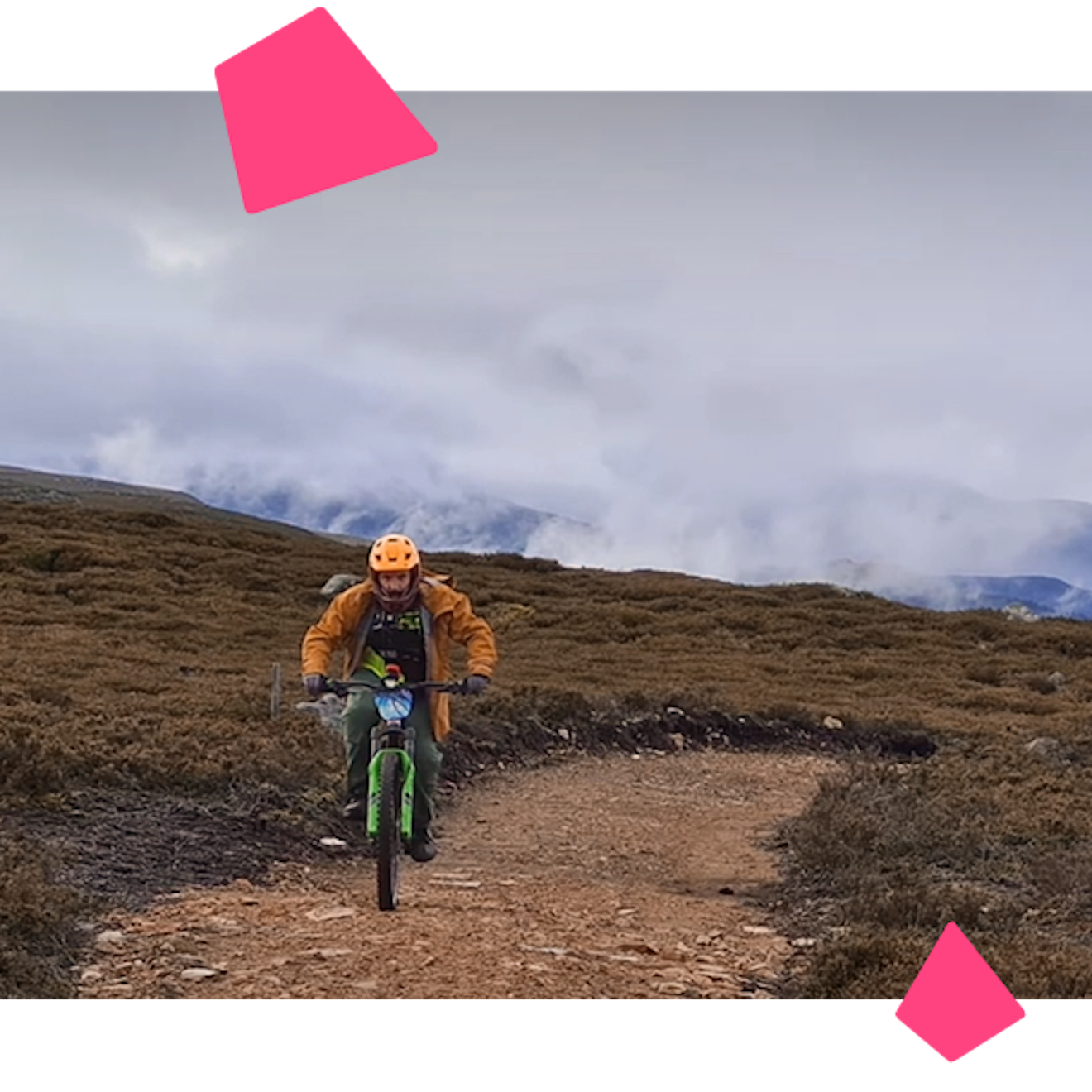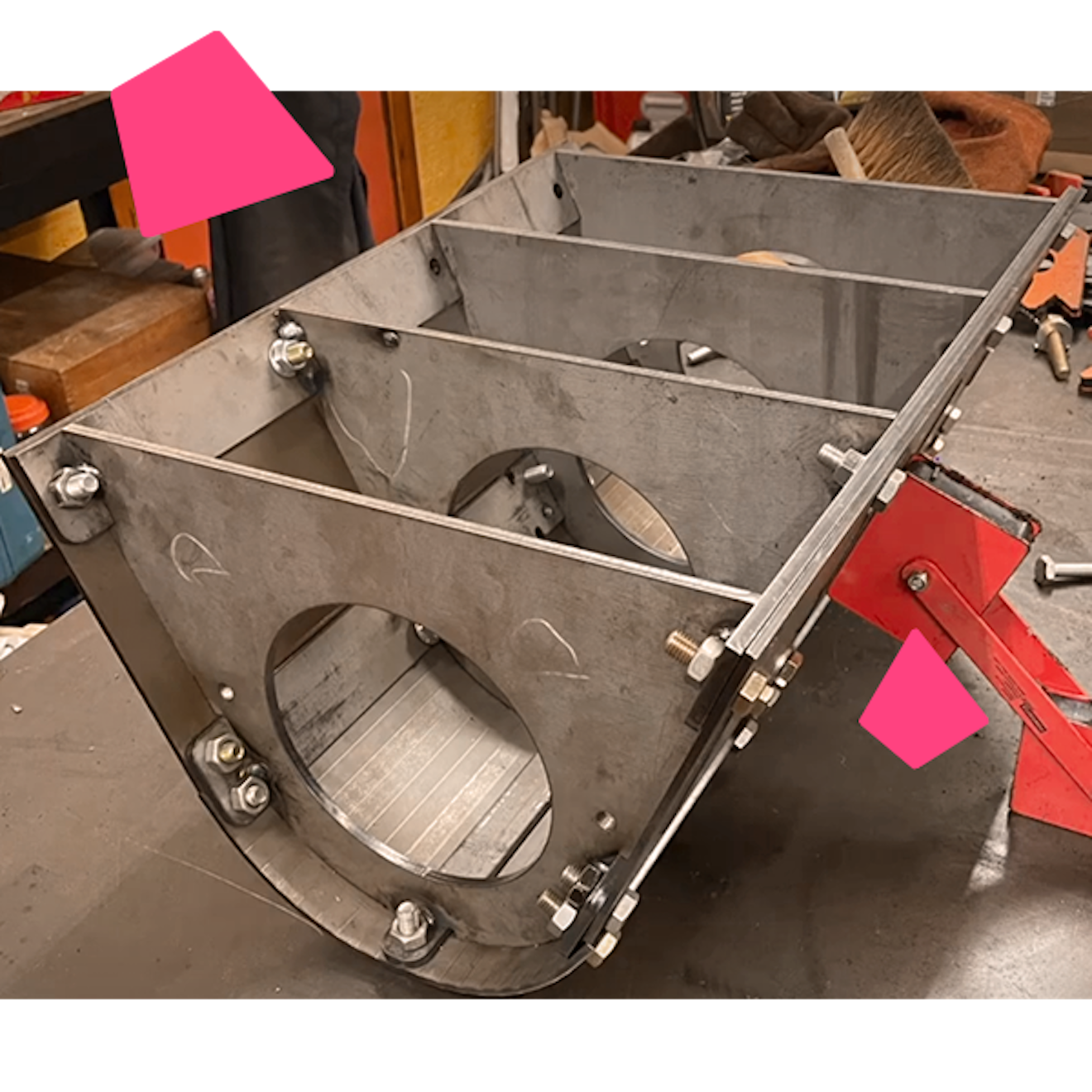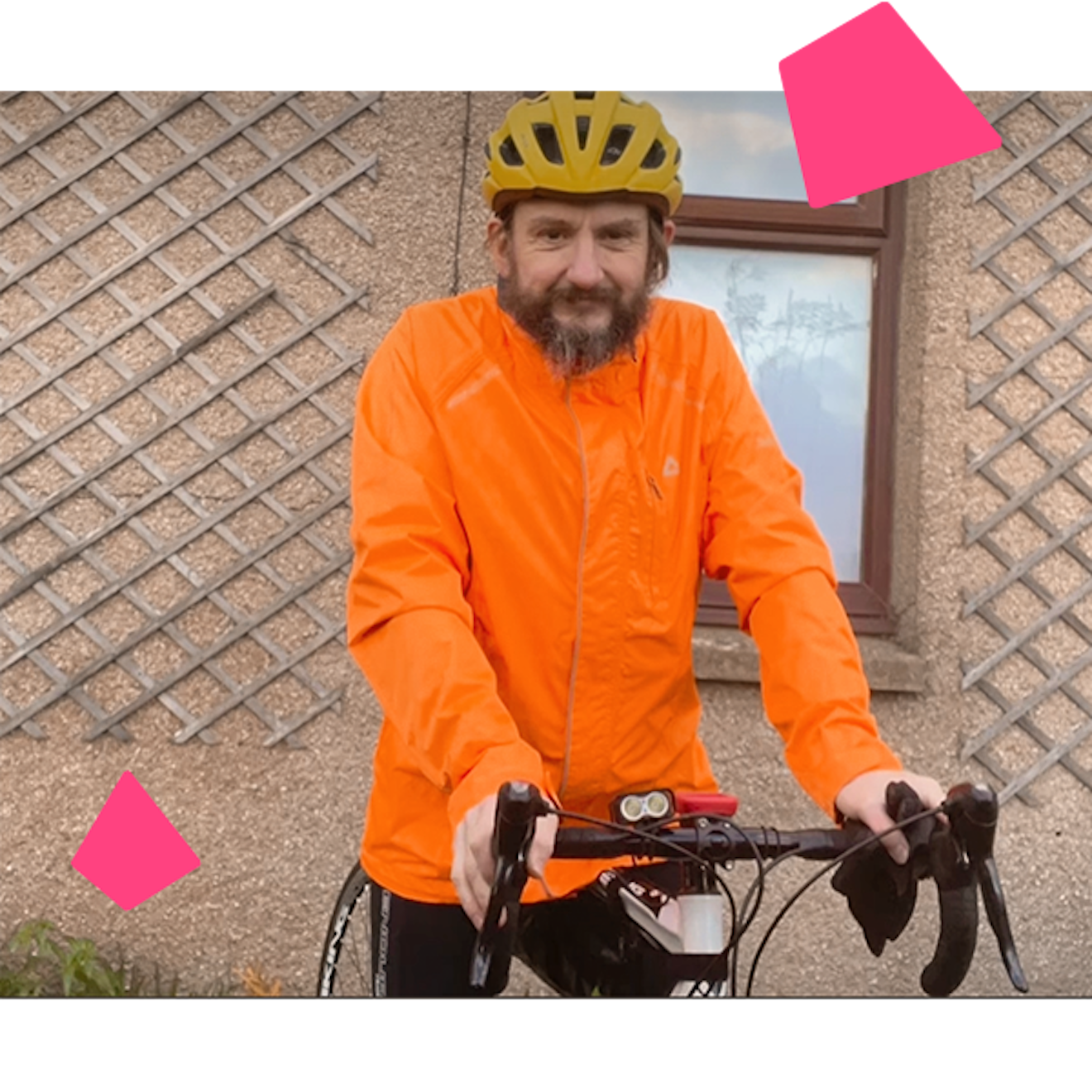Consultant Naval Architect and Engineer Andrew Comley

Meet Andrew
IPSE membership covers an amazingly diverse range of self-employed people, with thousands of freelancers, contractors and consultants. Every individual has valuable knowledge, experience and insight in building their business and career, including ‘accidental contractor’ Andrew Comley.
In addition to being self-employed in a fascinating industry for many years, Andrew also shares his insight into how working for himself with Asperger’s makes his business stand out, and how he uses the flexibility of freelancing to manage chronic pain.

Watch the highlight video
Read the interview
Can you introduce yourself and your business?
I’m Andrew Comley, I’m a consultant naval architect and engineer. We also have a small fabrication business as part of the work we undertake, and I’m probably best described as the accidental contractor.
So, an accidental contractor is a person who never actually intended to become a contractor, but was offered freelance work for a company that they used to work for. They felt it was better that I came in as a freelancer, so it was completely by accident.

How long have you been self-employed? And how was the switch?
I’ve been freelancing since 2008. We started in January 2018, so this is our 14th year. The transition was relatively easy, in so much as we kind of had a test period with our main clients. So, I did some work in the background while I was still holding down a full-time job with my employer. And we got used to freelancing for a few months before we made the switch to full-time.
What makes your self-employed business stand out?
What makes it great, I think, is the fact that we think outside the box. I have Asperger’s, so I don’t necessarily think the same way other people do. A lot of my clients like that, because we’ll find solutions where others failed.
And we’ll just take on a range of projects, so they know they can give me a call and we’ll just say yes and come up with a solution for them.
How has freelancing allowed you to work around your Asperger’s and chronic pain?
So there’s two aspects to that. In terms of Asperger's, I’m not very much of a people person. I don’t like offices, I don’t like the politics of offices, and they just stress me. From that perspective, I can work at home nice and quietly, and get the job done.
But also, I can work the hours that best suit me. So for instance, I don’t start work until at least 10 o’clock each morning, because my brain is not aligned with that time. I’m not a morning person. So I tend to work out in the mornings, and then I work for as long as it takes before my brain gets too tired. So that could be five in the afternoon, it could be 10 at night, it doesn’t really bother me.
And by getting that amount of exercise, it also helps my chronic pain most of the time, because what’s actually bad for joints is being sat all day, or being asleep in your bed at night. I always joke that I do the most damage to myself when I’m actually asleep!
Your joints are designed to move, so if you don’t, you increase your pain levels. If you’ve already got joint problems as I have, because I live with a broken back and other damage to my back and neck, then actually being sat at your desk is terrible for you. You need to make sure you get up and move, basically.
So I try to manage it by being flexible in my work. And if I want to take an afternoon off to go mountain biking, I’ll take an afternoon off to go mountain biking. I don’t worry about that, my clients don’t worry about that, as long as I get their projects done on time.
How does your expertise and perspective help you look at this in a different way? Do you have any examples of client projects?
The most opportune description I can give is that when I’m involved in investigations, as I was last Summer for quite a high profile incident in the North Sea, that I can take the helicopter view.
And then I can make all these random connections between various bits and pieces, rather like forming a neural network within my own head, to link the bits together. Whereas a lot of people just go down a set path, and they won’t be able to see the bigger picture.
It’s from the fact that I’m quite happy to bring in ideas from other spheres like archaeology, etc. And to take apart whatever happened to find out why it happened. And I also don’t have a problem with saying who caused an incident, when some people think you shouldn’t call anyone out. But that doesn’t bother me. I don’t have a problem with being unpopular on an investigation, because at the end of the day, I just want to make the industry safer.
Are there any projects or client work that you’re particularly proud of?
No. And the simple answer is, because I don’t do pride. That’s quite important to me and I prefer to be humble. If one is proud, then one tends to get a bit full of oneself, and that’s when one starts making mistakes.
And we all make mistakes all the time. So being humble, it’s also a lot easier to admit to mistakes, and say to a client, “you know what, I ballsed up, I need to sort it out”.
What would you say is your greatest business achievement since becoming self-employed?
Not yet going bust after 14 years? There’s been a bit of pressure over the last couple of years, and we go through peaks and troughs. I’d be the first to say I hate admin and I’m not great with finances.
And actually the flip side of Asperger’s is that I don’t get the value of money. Money doesn’t actually mean anything to me, it’s just something I can use to buy stuff. Normally we get paid by BACs and every so often a client will pay by cheque and you see the actual amount written on a piece of paper, and you’re like really? That much?
But yes, staying in business with the usual cashflow dilemmas that you get with overdue invoices, and it’s for a long-term client, so you can only apply so much pressure.

How do you handle the challenges of self-employment, and the aspects you don’t enjoy or find difficult?
I outsource it to be honest, and I have done for a few years. I have Asperger’s, which means I’m quite happy to ignore things. That’s pretty much anybody I speak to, but I ignore them until I actually have to do something about them.
Usually it’s my accountant pestering me for the books, and that’s actually why I’ve just employed a new bookkeeper to sort my books out for me. We’re reasonably good at getting our invoices in, mainly because we need money in the bank account. We’re OK on VAT returns and doing our payroll was fine because we employ a fitter and someone else to help me with some bits and pieces. But everything else, we’d like to farm it out.
At the end of the day, and this is what a lot of freelancers forget, is that you’ve only got so many hours in a day when you can work productively. It’s not sustainable, so you have to ask yourself how much does my client pay me? And how much does it cost me to buy in some support. And often, certainly in my profession, it’s cheaper to buy in the support than to lose that time with the client. I think a lot of freelancers don’t get enough support, but they’re not thinking about the outgoing and incoming balance.
Do you have any specific examples of how you manage your time?
What I generally do each day is I write a to do list, and it’s usually got 10 items on it. Around half of which are work items, and the other half are personal items. And at the end of the day I see how many I’ve ticked off.
But also, what I do is that any extra actions that I have to undertake that day, I add to the list. Because you can have great intentions, and then get a phone call from a client asking you to just do something on that day. And if you don’t add it to the list, you end with nothing ticked off because someone’s nicked all your time.
Literally at the end of the day, I work out whether it’s a bronze, silver or gold day based on how many items I’ve ticked off. And I use that as motivation, and a way of checking whether I’m using my time productively. I also journal a bit about the day, but just to get stuff out of my head, basically so I don’t have to think about it.
Do you have any advice for other freelancers based on your experiences?
Apart from the basic one that cash flow is king, which all freelancers should know! The other one is - don’t be afraid to challenge clients, particularly on IR35.
If a client wants you enough, they will sort out a way of navigating IR35. I refuse to work for an umbrella company, and I try to avoid agencies as far as possible. We are providing business to business services and the IR35 risk is minimal if the client can get their head around it.
So don’t be afraid to say to a client, “No, I don’t think you’re right”. We’ve done that before now, and got all the way up to board level in the company to get it sorted out.
What does self-employment mean to you? And what are the best things about it?
To me, it means two things. One is flexibility. And the other is self-worth.
Flexibility in terms of choosing when I work, what projects I work on, and who I work for, because we’re quite happy to turn projects down if we don’t think we’re a good fit, or it doesn’t fit with our own ethos.
Self-worth, because it’s all too easy when you’ve got something like chronic pain. I’ve seen this with people moaning about GPs not giving them enough painkillers, but what are you doing about it yourself, and the answer is usually nothing. So I think there’s a broader thing about self-employment for anyone with a disability of any type, that allows them to have self-worth, and then also alleviates pressure on the benefit system etc. And it’s a win-win for all people.
Now IPSE has actually done some research in that area. And I think it’s an area where we could be working in harmony with the government to encourage self-employment in particular sectors.
Flexibility and self-worth go up hand-in-hand basically, because if you value yourself, then you’ll take time off to do other things. I used to have a badge on my coats at university which says that I work to live not live to work. That’s always been my ethos, that work is a means to the end to do the things I want to do, rather than it is what I do. It’s important to get that balance correct. It’s all too easy as a self-employed person to work too many hours, which just dominate one’s entire life.
How has mountain biking and exercise helped you find a work life balance?
So we actually have to start away from mountain biking. I’m going through a divorce and we separated during lockdown. You can imagine still living in the same house during a lockdown is an interesting time.
So I ended up going out on my bike each day just to get some exercise and clear my head. And then I found my ambitions and skill had a slight mismatch, shall we say. So I decided to go and get some coaching to be safer. And from there, that led me into mountain bike racing, and it becomes addictive, basically.
I used to ride a lot when I was younger, but hadn’t done so much for the last few years. I don’t like watching TV all evening. I’m an active person, and so this allowed me to get back to doing what I like to do. I pretty much train five or six times a week for mountain biking. But that goes between sitting on an indoor bike on good old Zwift, being out on the road bike, in a coaching session or doing work with a PT.
So it has multiple benefits in terms of lowering my pain levels, getting me out in the fresh air, and because I make myself do group sessions when they’re available, it also gives me social interaction with a variety of people. And it focuses me not to live as a hermit, basically, which would be my preferred state most of the time!
Freelancing helps because I train most mornings, and so I won’t get to my desk until 10 or 11 o’clock. And then every two weeks, I’ve got a coaching session which takes up a Wednesday morning, for instance. Or I’ve got mates who will ring and ask if I fancy going for a ride, and that’s not a problem. It allows that flexibility, as long as I’m still getting my minimum number of hours done.
I know how important it is, because last summer I burnt out on a big investigation followed by a whole big set of analyses. Because I was working so many hours, I wasn’t getting out, and I literally burned out, which is an Asperger’s trait. And it pretty much wiped out September.

How long have you been an IPSE member, and what prompted you to join?
I’ve been an IPSE member since something like 2010, and the simple answer is something called IR35.
How has IPSE helped you with IR35 or other self-employed challenges?
I basically joined IPSE for the IR35 insurance. And making noises about it, banging on to Parliament about it, and generally keeping people informed about what was happening. So that’s why I joined, and then that’s led to other things.
In the past it’s been quite London centric. Now with the changes taking place and things like the newsletters keeping everyone more informed, it’s become more interesting.
I’m a member of the members forum, which basically acts as a conduit between the membership, the board and the senior management within IPSE. We meet on average once a quarter, we discuss what’s happening with IPSE and thow ideas into the pot, as it were.
And I’m also a member of the policy and research committee. We support Andy Chamberlain and his team in their work. We really discuss what IPSE is up to in terms of research, policy, loggerying, and throw ideas into the mix along with personal experiences.
Originally IPSE was based around IT consultants, and it’s grown from there. But the industry I work in wasn’t very well represented, and neither was disabilities as a whole, so I joined both groups in order to become a voice for those two sectors.
We’ve also used Markel, for which we get discounts as IPSE members, in order to get IR35 assessments done.
Have you supported or been involved with any IPSE campaigns?
Yes, both directly and indirectly. For instance, ducing COVID, a number of us volunteered from the members forum to sit in on a call with the Small Business Minister. In terms of IR35, we’ve written to our MP about it, and we’ve also done late payment stuff. And we’ve actually been on Radio 4 Money Box Live - we did a recording for them about late payments.
It’s important for me to be involved simply because of my faith, and helping others.
Would you recommend IPSE membership to other self-employed or freelance professionals?
Yes, I would. But they also need to determine what level of membership is correct for them, and what they want to get out of it.
I was always primarily an IPSE member due to the IR35 insurance, but I know from speaking to fellow members, there’s a variety of reasons why people have joined up. So it depends on your location and what sector you’re in, as to what you’re going to get out of your membership.
Hear more stories

We want to share the knowledge and experiences of our members to help more people succeed in building their own careers and businesses.

In this series, we follow several self-employed freelancers as they navigate the ups and downs of this exciting career path. Learn about their challenges, their successes, and advice for others considering self-employment.

If you’d like to share your own experiences or know someone who would make a great subject for a quick chat, let us know!

